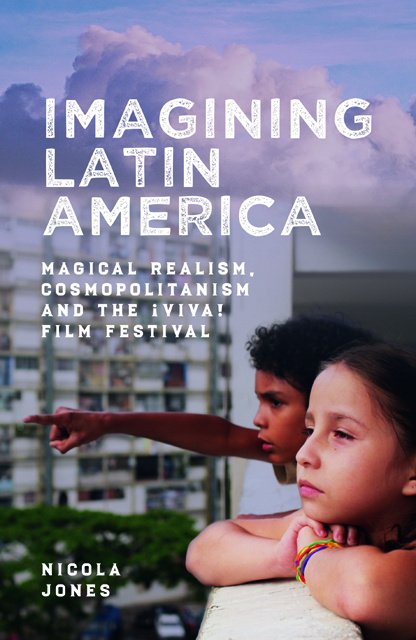Book contents
- Frontmatter
- Contents
- List of Illustrations
- Acknowledgements
- Introduction: Latin American Culture in the UK
- 1 British Identity, Cosmopolitan Anxieties and the Latin American Other
- 2 Latin America and Magical Realism in the British Press (1940–2015)
- 3 Cultural Consumption in Manchester
- 4 The Production of Latin America through ¡Viva!
- 5 Consuming Latin America through ¡Viva!
- Conclusion
- Appendix 1: Analysis of the British Press (1940–2015)
- Appendix 2: ¡Viva! Post-Screening Questionnaires and Interviews
- Bibliography
- Index
3 - Cultural Consumption in Manchester
Published online by Cambridge University Press: 14 January 2023
- Frontmatter
- Contents
- List of Illustrations
- Acknowledgements
- Introduction: Latin American Culture in the UK
- 1 British Identity, Cosmopolitan Anxieties and the Latin American Other
- 2 Latin America and Magical Realism in the British Press (1940–2015)
- 3 Cultural Consumption in Manchester
- 4 The Production of Latin America through ¡Viva!
- 5 Consuming Latin America through ¡Viva!
- Conclusion
- Appendix 1: Analysis of the British Press (1940–2015)
- Appendix 2: ¡Viva! Post-Screening Questionnaires and Interviews
- Bibliography
- Index
Summary
Culture plays a fundamental role in the development and promotion, both national and international, of twenty-first-century Manchester. As Sir Richard Leese, leader of Manchester City Council since 1996, stated in the 2010 prospectus for Manchester’s cultural ambition: ‘The past decade has seen culture transform the experience of living and working in the city. As a consequence, culture now matters more than ever to Manchester’s many communities ….The city’s cultural potential is now fundamental to its future economic and social potential and to our ambition as a world-class city’ (Manchester Cultural Partnership, 2010, p. 4).. In this chapter, I examine how the specific notion of culture promoted by city officials, which was encouraged through a programme of culture-led urban regeneration in Manchester during the 1980s and 1990s, has centred on the development of high-brow cultural institutions and events, such as museums and arts festivals, as well as the formation of cultural quarters. While some of these, particularly the latter, incorporate local immigrant culture into the cultural landscape of the city, such inclusion only occurs when the culture of local immigrants is deemed to contribute significantly to the city’s economy and/or cosmopolitan image. Moreover, it is a formulaic and exoticised production of this culture that is visible within Manchester. Such a construction presents the consumer with a familiar Other, one they recognise from cultural stereotypes and which has also been hybridised with British cultural norms to enable its easier consumption. Despite Manchester’s long history of immigration and its reputation as one of the most multicultural cities in the UK (University of Manchester, 2013), the production and consumption of local immigrant culture coincides with studies of cosmopolitan consumption discussed in chapter 1, in which consumers seek to perform ‘safe’ and ‘uncomplicated’ cosmopolitan identities. Such identities centre on a temporary engagement with a cultural Other which bestows cultural capital but entails minimal interaction with immigrants themselves and requires little transformation or self-reflection on the part of the consumer (see Buettner, 2008; Delanty, 2009; Gilroy, 2004; Tanaka, 2008; Torres and Buriel, 2010).
In contrast to other local immigrant cultures, such as Chinese or South Asian, which benefit from a history of substantial migration to the city, Latin American culture has only emerged in Manchester in the last few decades.
- Type
- Chapter
- Information
- Imagining Latin AmericaMagical Realism, Cosmopolitanism and the ¡Viva! Film Festival, pp. 83 - 114Publisher: Boydell & BrewerPrint publication year: 2021



